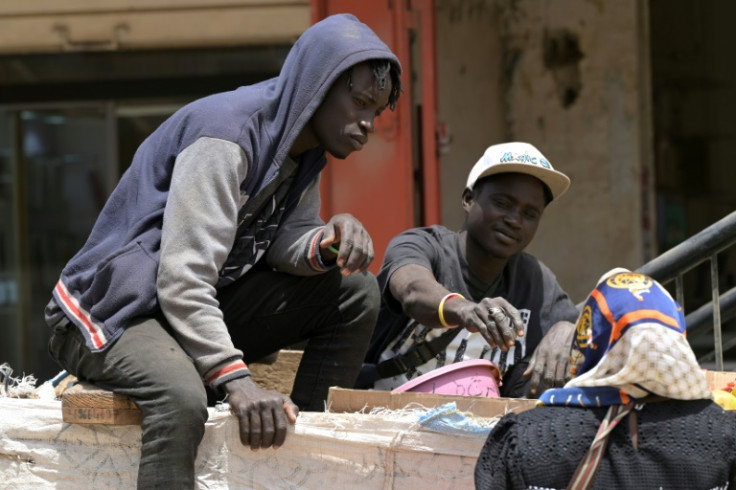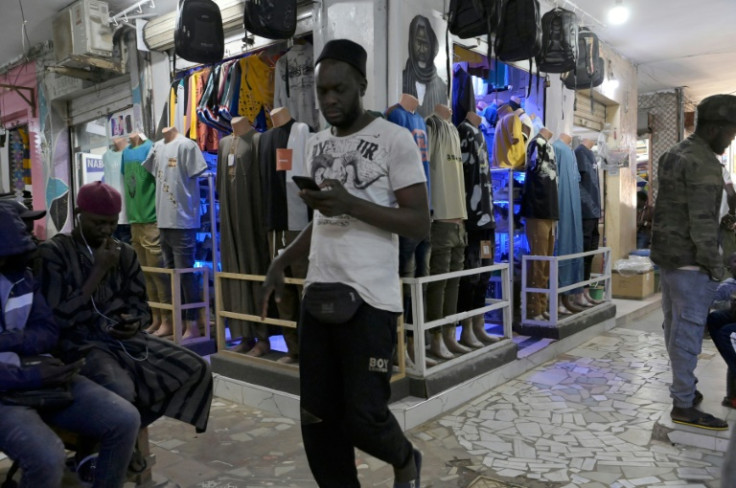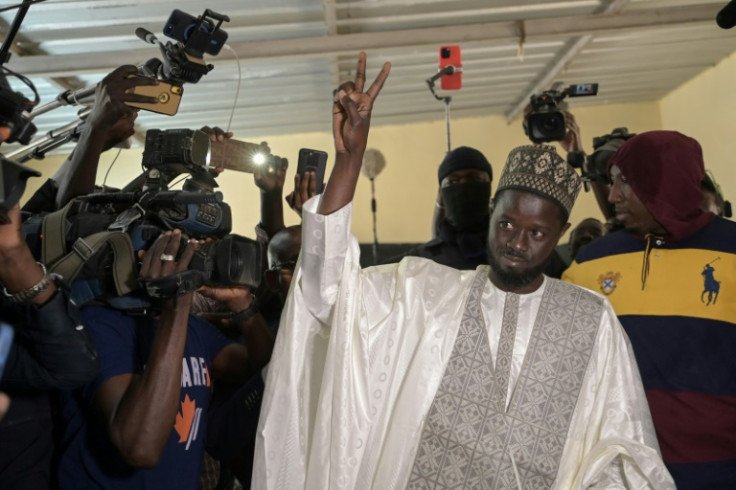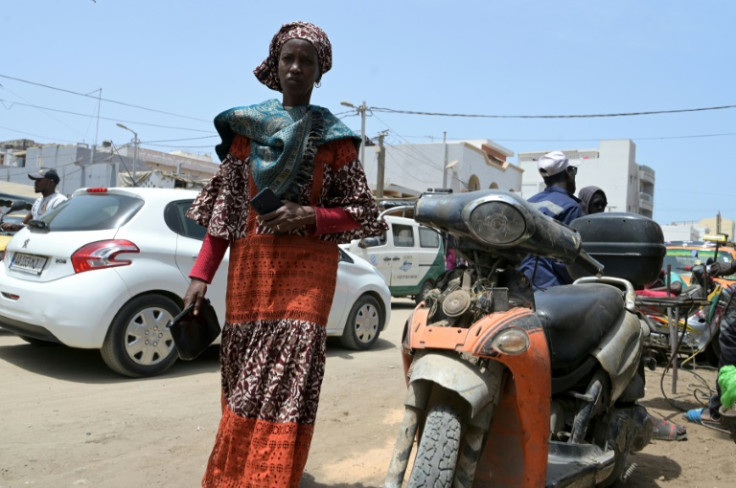
Hunched in his market workshop in a northern Dakar suburb, Cheikh Lo recounted why he had pinned all his hopes on Senegal's anti-establishment president elect Bassirou Diomaye Faye.
"We've suffered a lot, 12 years of suffering, that's really enough," said the 34-year-old tailor, a day after Faye swept to a first-round victory.
"With Diomaye, we really want radical change".
Faye, 44, is set to become Senegal's youngest ever president after winning Sunday's vote on a ticket of systemic overhaul after years of deadly unrest, economic stagnation and a political crisis.
His main rival, the governing coalition's Amadou Ba, conceded defeat after failing to woo voters on a promise of continuing the status quo.
Even in his own voting district in northern Dakar, provisional results show Ba was crushed at the ballot box.
"It was a punishment vote really," said Lo, who works in a sprawling indoor market in Ba's working-class district.
"That's why everyone came out en masse to vote and punish the regime that was in power".
Despite implementing a vast multi-year development programme, outgoing President Macky Sall leaves behind 20 percent unemployment and persistent poverty in the West African nation.
At least one in three of Senegal's roughly 17 million inhabitants still lives in poverty, according to the UN World Food Programme.
Lo estimated that his income had halved over the last 12 years under Sall.
While he said he could sometimes make up to 20,000 CFA francs ($33) per day, there were also days when he would make nothing.
"In previous years, it was wonderful... we didn't work much and got a lot of money. But now it's a shame... We work hard but we don't get much," he said.
The sentiment was widely shared by Lo's fellow traders, whose jumble of stalls occupy the winding alleys of the market.
Ndeye Farma Gueye, 43, said it had been around 20 days since she'd had a customer in her small shop selling artisanal goods.
"We've been through hell," she said.
"It was better before Macky came along... we've had to tighten our belts," she added.
Soon-to-be president, Faye, ran on a pledge of redistributing Senegal's wealth and on Monday committed to lowering the cost of living.
The campaign promises resonated with those AFP spoke to in northern Dakar.
Gueye said she voted for a transformation on multiple fronts, including living standards, youth prospects and the development of the country.
"We're expecting a lot of things and we know they're going to change over the next few months," she added.
The market traders were also eager for greater respect for the rule of law after several bouts of unrest since 2021.
The turmoil -- which partly stemmed from a stand-off between Faye's charismatic political mentor Ousmane Sonko and the state -- saw dozens killed and hundreds arrested across the country.
Everyone AFP interviewed said they knew someone arrested during the protests.
"I have a brother here at the market who was arrested and tortured in some way," said Gueye.
"I know many, many, many people... they came out with a lot of trauma," she added.
Faye, himself arrested in April 2023, was released from prison alongside Sonko just over a week before the election.
He has said his priority is "national reconciliation", with a political project based on institutional reform to restore the rule of law in Senegal, which he asserts was flouted by Sall.
"People have the impression that Ousmane Sonko and Bassirou Diomaye Faye have more values than the others who are candidates of the system," said El Hadji Mamadou Mbaye, a political science lecturer and researcher at the University of Saint-Louis.
With roughly half of Senegal's population under the age of 20, "this election marks a victory for the youth who are waiting" for change, said Mbaye.
Along the campaign trail, Faye massed vast crowds of young people drawn in by a rhetoric promising a "break" from the past.
"For a very long time, it's only been the old who have darkened our country," said Mame Faty Diop, 45, a cosmetics seller who said she voted for "radical change" with Faye.
Diop said the political situation and lack of economic prospects had led to a hopelessness among young people, triggering mass departures across perilous Atlantic waters.
"Even in my shop, I've employed quite a few people, and they've left to go and work as illegal immigrants... they tried to go to Europe," she told AFP.
Diop said she hoped a vote for Faye would mean a greater focus on young people, better job opportunities and incentives to stay in Senegal.
"It all comes down to hope. You never know what they're going to do, but we're hopeful about the plan," agreed Lo.










